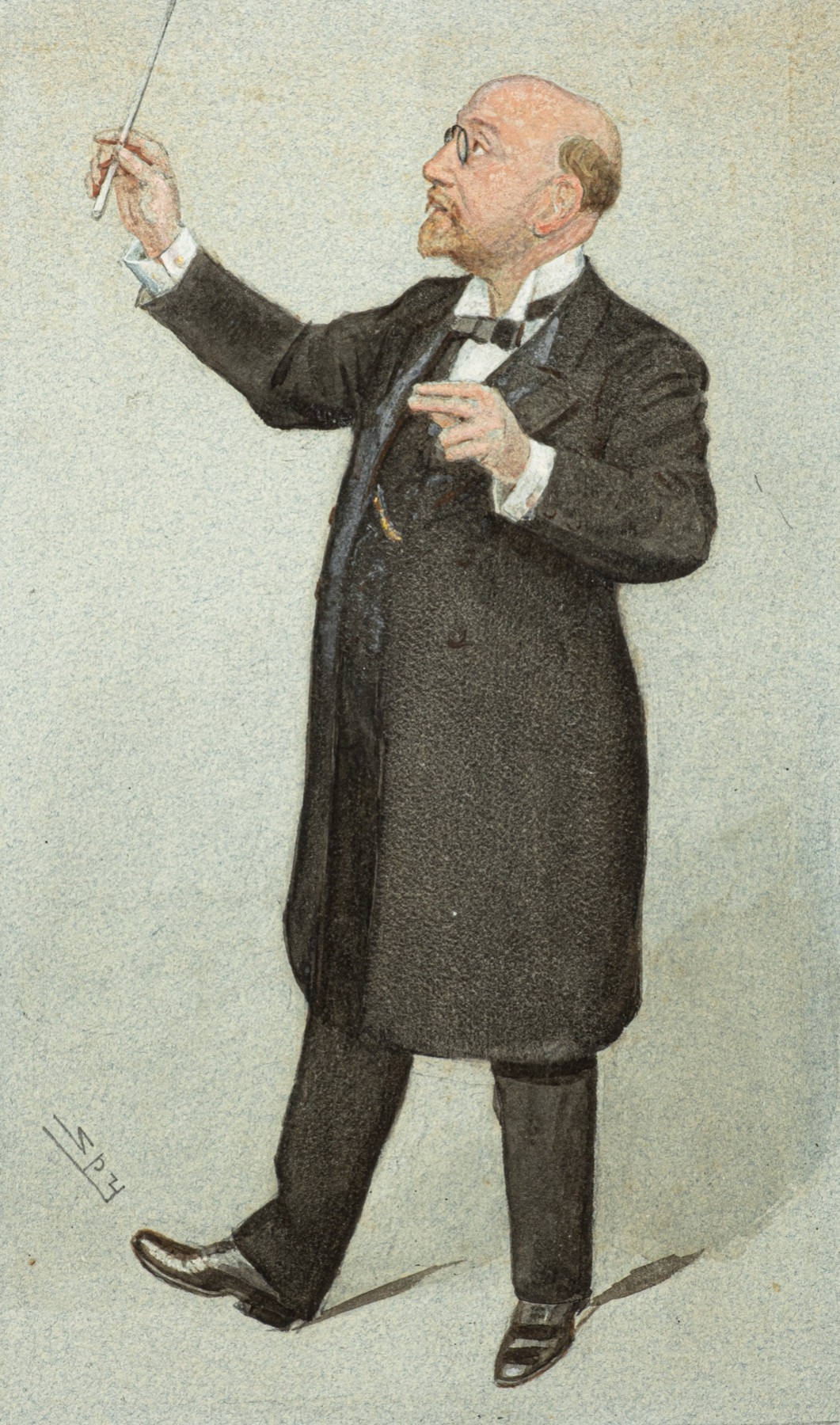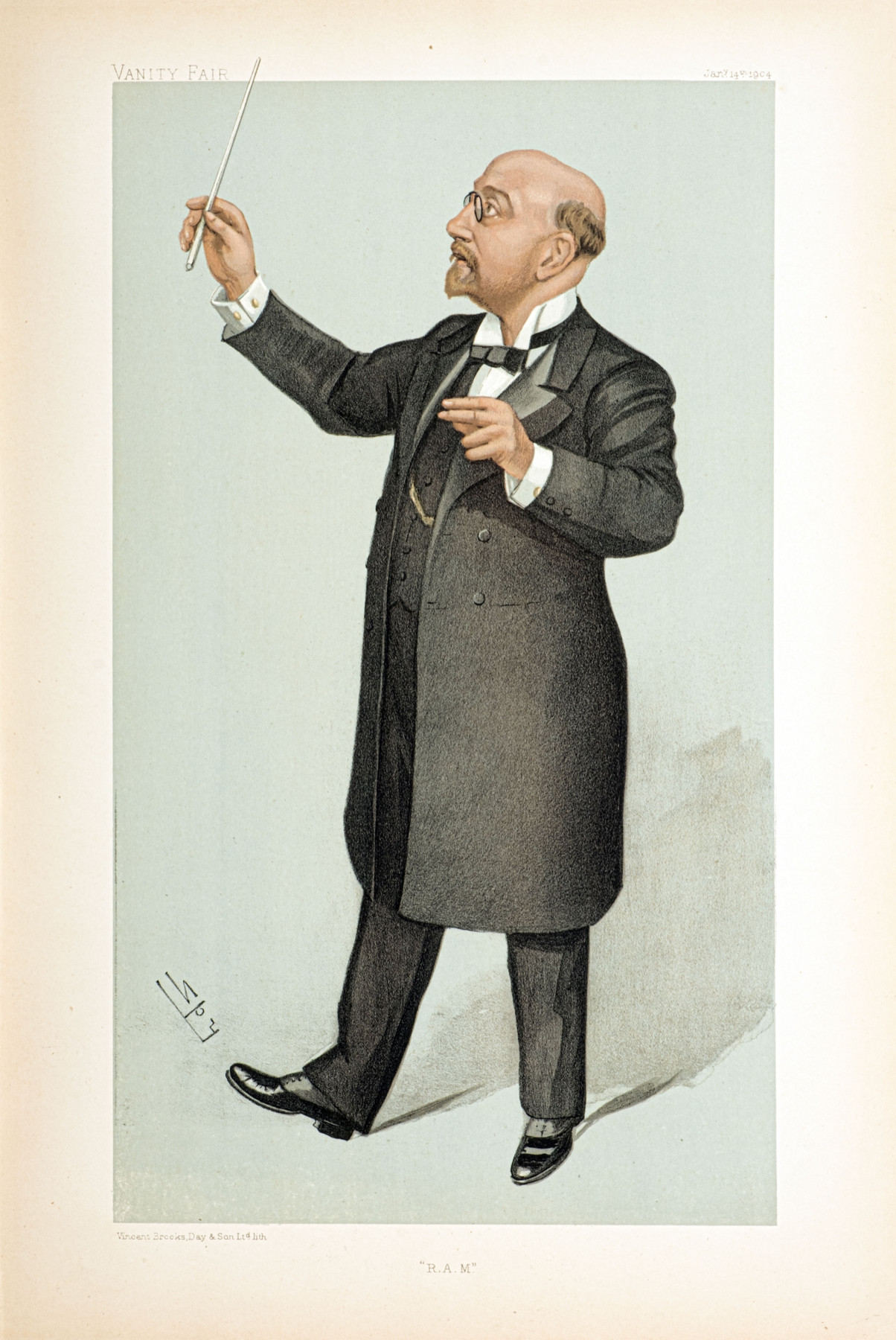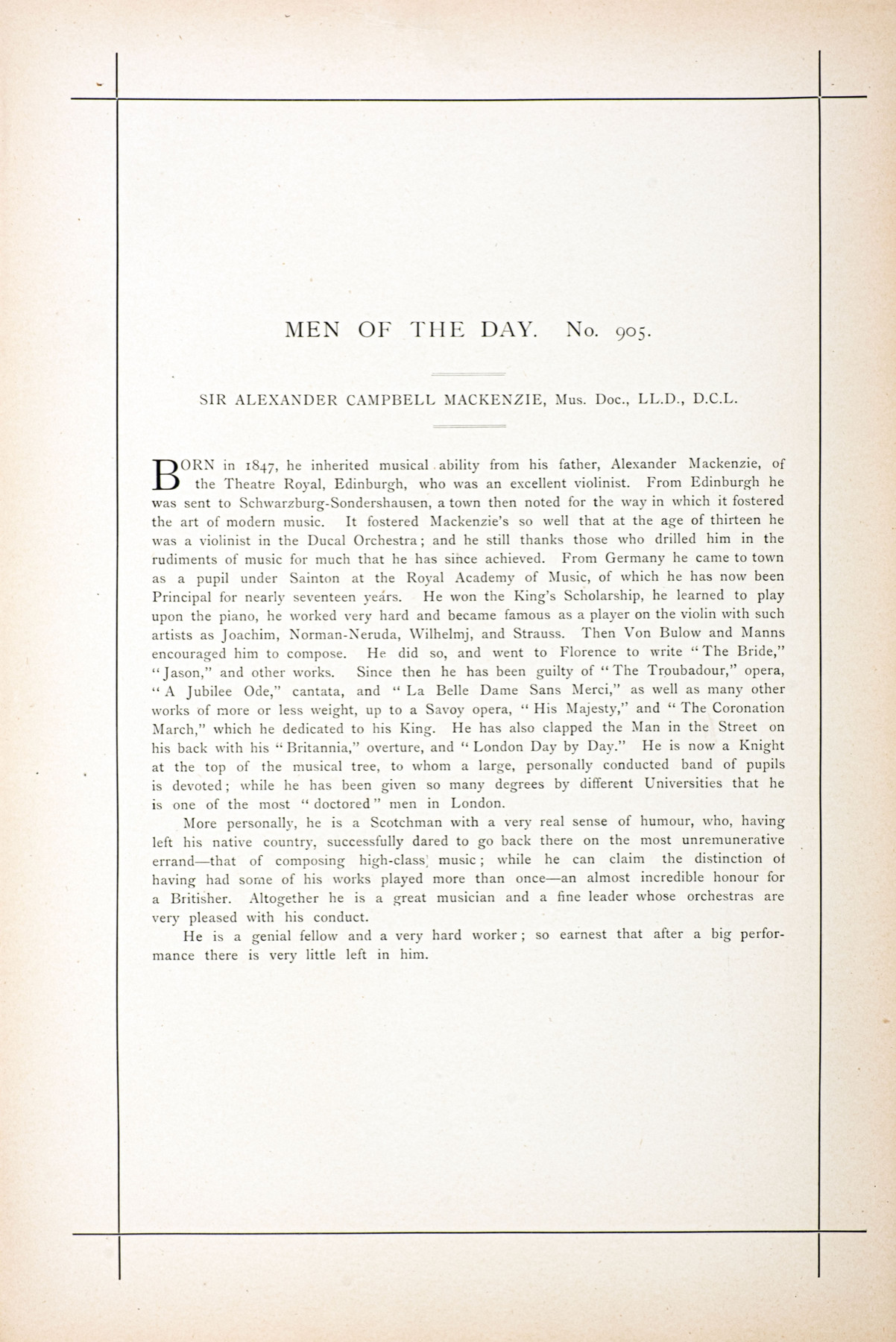


Sir Alexander Mackenzie (1847-1935) was a composer and conductor, who also trained as a violinist. Born in Edinburgh, he moved to London in 1862 and entered the Royal Academy of Music. He returned to Edinburgh following the completion of his studies in 1865 and remained there until 1881, when he moved to Florence for the sake of his health. He returned to London in 1887 to become principal of the Royal Academy of Music, a position he held until his retirement in 1924. From 1892 to 1899 Mackenzie was conductor of the Philharmonic Society's concerts, and he was knighted in 1895.
“Born in 1847, he inherited musical ability from his father, Alexander Mackenzie, of the Theatre Royal, Edinburgh, who was an excellent violinist. From Edinburgh he was sent to Schwarzburg-Sondershausen, a town then noted for the way in which it fostered the art of modern music. It fostered Mackenzie's so well that at the age of thirteen he was a violinist in the Ducal Orchestra; and he still thanks those who drilled him in the rudiments of music for much that he has since achieved. From Germany he came to town as a pupil under Sainton at the Royal Academy of Music, of which he has now been Principal for nearly seventeen years. He won the King's Scholarship, he learned to play upon the piano, he worked very hard and became famous as a player on the violin with such artists as Joachim, Norman-Neruda, Wilhelmj, and Strauss. Then Von Bulow and Manns encouraged him to compose. He did so, and went to Florence to write ‘The Bride’, ‘Jason’, and other works. Since then he has been guilty of ‘The Troubadour’, opera, ‘A Jubilee Ode’, cantata, and ‘La Belle Dame Sans Merci’, as well as many other works of more or less weight, up to a Savoy opera, ‘His Majesty’, and ‘The Coronation March’, which he dedicated to his King. He has also clapped the Man in the Street on his back with his ‘Britannia’, overture, and ‘London Day by Day’. He is now a Knight at the top of the musical tree, to whom a large, personally conducted band of pupils is devoted; while he has been given so many degrees by different Universities that he is one of the most ‘doctored’ men in London.
More personally, he is a Scotchman with a very real sense of humour, who, having left his native country, successfully dared to go back there on the most unremunerative errand - that of composing high-class music; while he can claim the distinction of having had some of his works played more than once - an almost incredible honour for a Britisher. Altogether he is a great musician and a fine leader whose orchestras are very pleased with his conduct.
He is a genial fellow and a very hard worker; so earnest that after a big performance there is very little left in him.”